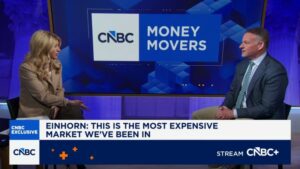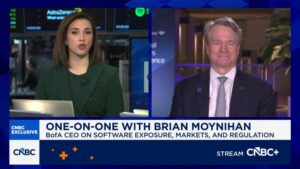Panic buying is in the news again, and many of us faced queues at petrol stations over the weekend. This got me thinking – what triggers ‘panic buying’? Is it fair to call it that at all? And can the same behaviour lead to ‘panic selling’? If so… could we be looking at a stock market crash?
Panic buying explained
There is some interesting research on the psychology of panic buying, and a few drivers seem to stand out this year.
One Killer Stock For The Cybersecurity Surge
Cybersecurity is surging, with experts predicting that the cybersecurity market will reach US$366 billion by 2028 — more than double what it is today!
And with that kind of growth, this North American company stands to be the biggest winner.
Because their patented “self-repairing” technology is changing the cybersecurity landscape as we know it…
We think it has the potential to become the next famous tech success story. In fact, we think it could become as big… or even BIGGER than Shopify.
Click here to see how you can uncover the name of this North American stock that’s taking over Silicon Valley, one device at a time…
The first explanation is that panic buying is a safety blanket to help consumers deal with uncertainty. After all, we can’t control a pandemic or fuel shortages, but we can make sure we have well-stocked cupboards and a full tank of fuel.
Secondly, could it be down to ‘loss aversion’? This idea pops up quite often in the world of investing. Simply put, it argues that we care more about avoiding losses than getting equivalent gains. In other words, missing out on a pack of loo rolls feels much more significant than securing one.
Another explanation is that panic buying is simply down to herd mentality, and blindly following one another’s lead. But could it actually be rational? David Savage, a Professor of Behavioural Economics argues yes: if you are facing a lengthy period of Covid isolation or need petrol to get to work, stocking up makes sense.
Too many loo rolls
And the impacts of recent panic buying have spread over to the stock market too. Though up by around 20% over the past 12 months, the FTSE 350 fell by 30% between mid February and 20 March as concerns about Covid grew. Despite the overall drop in the UK stock market, supermarkets fared better as consumers stocked up – Morrisons saw its share price rise over the same period; as did Ocado and Sainsbury’s – though performance over the past 12 months has been mixed. Since petrol panic-buying has made the news, BP’s share price has also risen from 303p a month ago to 350p today, up around 40% over the past 12 months.
Will the bubble burst?
We see a sort of panic buying phenomenon in the stock market with share price bubbles. Here, investors fear missing out on an opportunity and rush to buy a certain stock. Increased demand for a share (driven by any of the causes listed above) leads to an increase in the share price and a ‘bubble’ can form.
On the other side of the coin, we can also see ‘panic selling’. Investors sell off shares, leading to increases in supply and price drops. Does the same psychology drive both?
It looks to me as though it can. Loss aversion can lead to investors selling stocks as the share price drops, to try and protect themselves from further price decreases. If you are interested in learning more, my colleague has written more about the psychology of loss aversion here. Herd mentality can also have an impact – if others are selling, should you join them?
At first glance, a loo roll stockpile and a stock market crash seem to have nothing in common. But I’m wondering now if the same psychology that leads to panic buying could feed into a stock market crash.
Hermione Taylor does not have a position in any of the shares mentioned. The Motley Fool UK has recommended Morrisons and Ocado Group. Views expressed on the companies mentioned in this article are those of the writer and therefore may differ from the official recommendations we make in our subscription services such as Share Advisor, Hidden Winners and Pro. Here at The Motley Fool we believe that considering a diverse range of insights makes us better investors.
This post was originally published on Motley Fool







